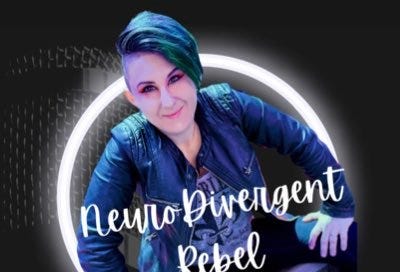Late Autism Diagnosis & Generational Trauma - When Loved Ones Don't Accept that You ARE Autistic
"You're NOT Autistic! Late-onset Autism isn't a thing!" She said, quickly shutting down any conversations about my late Autism diagnosis.
Welcome to Founding Member Friday! Every other Friday a post like this one will be brought to you by and for our Founding members. The first half of this post is FREE to everyone here on Substack and the second half of the post is ONLY available to our founding members (as a thanks for the extra support they give to make this blog possible).
We currently have ONE founding member. I won’t put them on the spot here today, but you know who you are. I can’t thank you enough for your support. This one is for you.
"You're NOT Autistic! Late-onset Autism isn't a thing!" She said, quickly shutting down any conversations about my late Autism diagnosis.
The words cut through me with sharpness and heat. I wanted so badly for this person, more than anyone else in my family, to understand what being diagnosed Autistic at the age of 29 had meant to me. Still, this person (who used to be MY person) was upset at any mention that I could be Autistic.
This person, who still cannot accept that I am Autistic, is (ironically) the main reason I received the Autism assessment.
As part of my adult Autism assessment, I was required to provide contact details for multiple people who knew me as a child and in multiple life contexts. I had one friend who had known me since preschool, one who had known me since high school (and was a current co-worker), and one guardian.
I picked the guardian I knew would be honest in the interview.
Before my diagnosis, this guardian and I were close. However, all these years later, this guardian is the one who STILL refuses to acknowledge that I'm Autistic (even though their testimony and knowledge of my early childhood made my diagnosis possible).
When I started disclosing my Autism to people, I realized that people who've known you for years typically will react in one of two ways when you announce a late Autism discovery to them.
Some people, though rare, will react as you'd hope when you share this information with them. My childhood best friend, who had been part of the screening process, was one of the few who (like me) felt Autism made so many things about me make sense. "This explains EVERYTHING!" she exclaimed when I told her.
Most people, unfortunately, won't react well (because they don't understand what Autism is, worse if they are Autistic and in denial about this fact).
"You can't be Autistic! You're just like me!" "Everybody does that!" and "You MUST be VERY high functioning" are more common responses I've encountered when disclosing my Autism to people.
In my experience, the Autistic and other NeuroDivergent People who don't know they are NeuroDivergent (or are in denial about their own undiscovered NeuroDivergence) can be the most dismissive people to come out too because their cognitive dissonance about Autism (or other NeuroDivergence) prevents them from seeing Autistic and NeuroDivergent traits for what they are.
Founding Members have access to the rest of this post.



